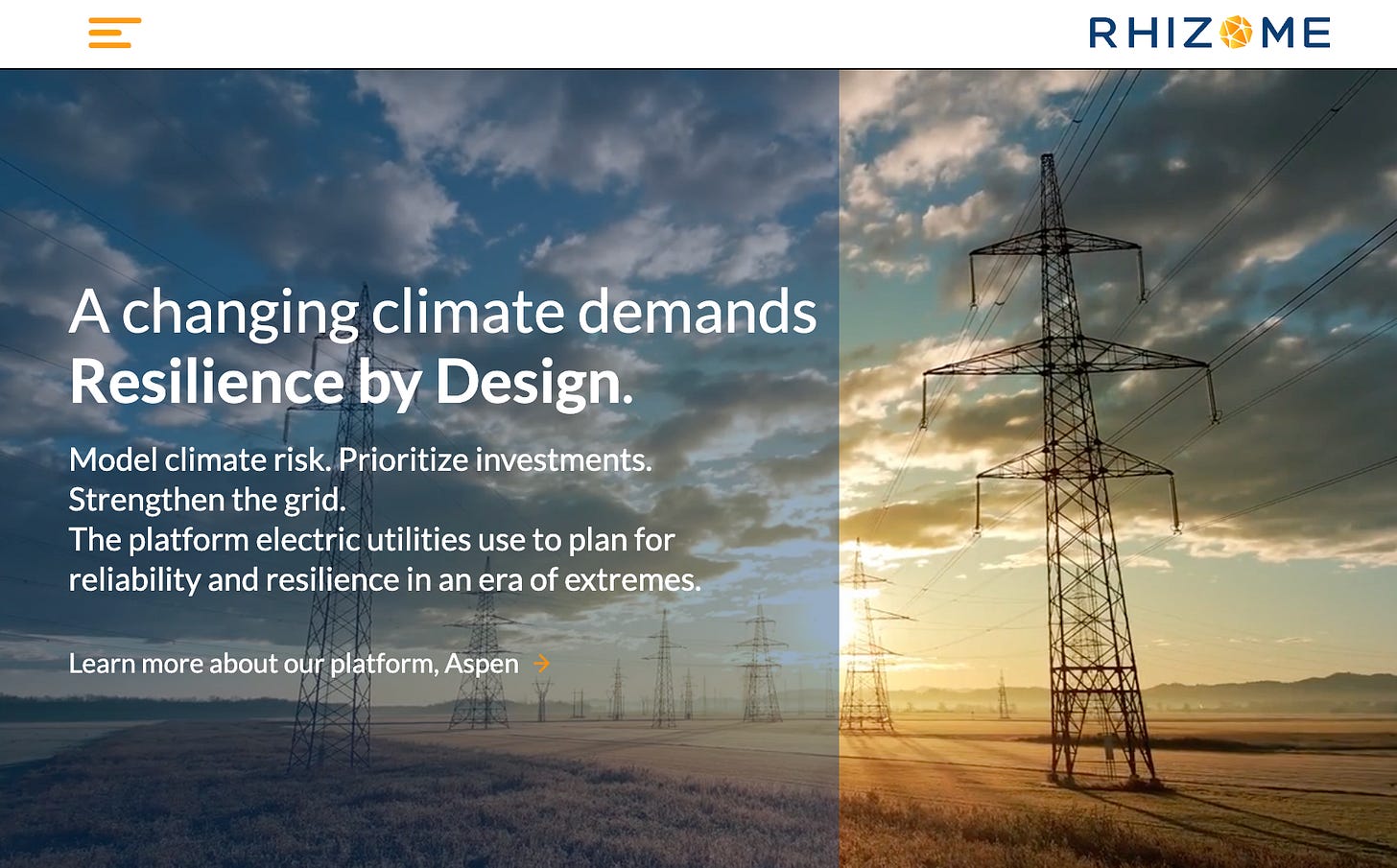The $500B Climate Challenge and How Rhizome Is Helping Utilities Tackle It
Rhizome Data is an AI-powered software platform that helps electric utilities identify vulnerabilities from climate threats and measure the economic and social benefits of grid-enhancing investments.
As extreme weather events surge, so does the pressure on utilities to protect power grids without breaking the bank. Enter Rhizome, a climate resilience planning platform co-founded by Mishal Thadani, which is helping energy providers navigate the complicated calculus of resilience: how to harden systems, protect communities, and justify the price tag.
In a new report published with the Smart Electric Power Alliance (SEPA), Rhizome outlines how utilities are trying to future-proof their distribution systems while keeping energy affordable. The stakes are high. Between 2021 and 2023, U.S. utility capital expenditures grew from $136.6 billion to over $160 billion—with 36% earmarked for climate adaptation. Still, there remains a $500 billion shortfall in funding needed to fully climate-harden generation, transmission, and distribution infrastructure.
“[With] a blank check, you could make a bulletproof system,” said Thadani. “But affordability is becoming increasingly important.”
Quantifying What Hasn’t Happened Yet
Resilience planning often means making investments in systems—like emergency microgrids or fireproofing upgrades—that may never be visibly “used.” That presents a challenge: how do you prove value to regulators for a crisis that never comes?
Rhizome’s approach begins with data-driven risk modeling—factoring in climate projections, historical events, and potential economic loss from outages. Thadani notes the real cost of grid failure isn’t just lost electricity—it’s lost productivity, food spoilage, and threats to public health. But even as utilities begin developing performance metrics, from “no outage longer than 24 hours” (Consumers Energy) to storm restoration savings (Entergy New Orleans), putting a dollar figure on avoided crises remains elusive.
A Sector in Search of Standards
Despite progress, most utilities are still struggling to monetize resilience. “It’s early days,” said SEPA’s Mac Keller, a co-author of the report. “There’s not a generally accepted silver bullet for valuing resilience.”
Still, efforts like Rhizome’s are helping move the industry toward a more robust framework. By advocating for better resilience metrics, smarter planning tools, and cost-benefit-driven decision-making, Rhizome is at the forefront of translating abstract risk into actionable investment.
And with fire seasons growing longer, storms hitting harder, and outages stretching wider, that translation is exactly what utilities—and the communities they serve—need now.
Read more on Latitude Media
Listen to Jenny Fielding with Colin Horsford on the Venture Everywhere podcast: The Tax Muse. Now on Apple & Spotify and check out all our past episodes here!


